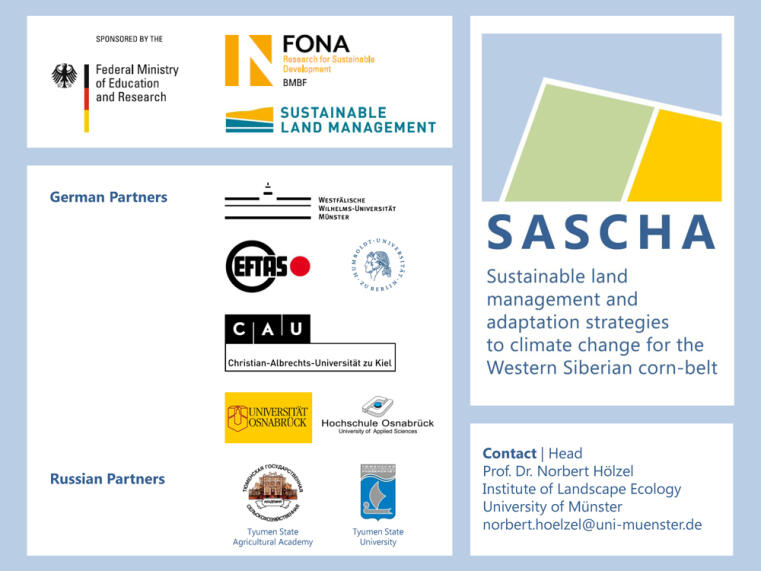Project desciption
The project is part of the BMBF-Funding Measure “Sustainable Land Management“ Module A "Interaction between Land Management, Climate Change and Ecosystem Services".
SASCHA as a German-Russian research project aims to provide basic knowledge and practical management tools to cope with recent and future ecological change and landscape transformation in Western Siberia. The interface between the steppe and the northern forest zone is of global significance in terms of carbon sequestration, food production, and biodiversity. All these subject matters have been and will continue to be affected by climate change and rapid socioeconomic development. Climate-induced agricultural expansion and increasing cultivation of energy plants in this region will trigger fundamental changes in land use. Negative impact on the budgets of greenhouse gases (GHGs), on sustainable soil and water resources management, and on biodiversity are anticipated. The impact of different agricultural land-use types and intensities on various ecosystem goods and services such as carbon sequestration, soil fertility, water resources, and biodiversity in the Tyumen region will be assessed and evaluated. The gained information will be used for (i) developing optimized, long-term, sustainable agricultural land-use practices at farm level, and (ii) for the definition of priority areas for different land-use types and intensities under various scenarios of climate change at landscape level. To apply the project results in an operational planning framework, implementation and monitoring tools will be developed under strict consideration of institutional structures of governance and other socio-economical needs and constraints.



